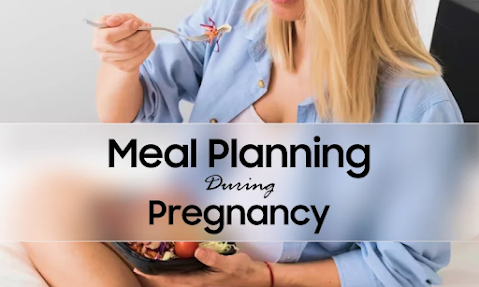Best IVF Protocol for PCOS
Women with Polycystic Ovary Syndrome
(PCOS) often face challenges when it comes to fertility and conceiving
naturally. In vitro fertilization (IVF) has emerged as a popular and effective
treatment option for these individuals. However, choosing the right IVF
protocol is crucial for maximizing the chances of high pcos ivf success rate. In this article, we will delve into the best IVF
protocols for PCOS and provide you with a comprehensive understanding
of the process.
Overview of PCOS
PCOS is a hormonal disorder that affects
women of reproductive age. It is characterized by irregular menstrual cycles,
excessive levels of male hormones (androgens), and the presence of multiple
small cysts on the ovaries. These factors can make it difficult for women with
PCOS to ovulate regularly, leading to fertility issues.
Preparing for IVF with
PCOS
Before embarking on the pcos IVF protocol journey, it is
essential to manage the underlying symptoms of PCOS. This may involve lifestyle
changes, such as weight loss, regular exercise, and a healthy diet.
Additionally, your doctor may prescribe medications to regulate hormone levels
and promote ovulation.
Choosing the Right IVF
Protocol
The choice of IVF protocol for women with
PCOS depends on various factors, including age, ovarian reserve, and the
severity of the condition. Your fertility specialist will evaluate your
individual case and recommend the most appropriate protocol based on your
specific needs.
Common IVF Protocols for
PCOS
1.
Long Agonist Protocol: This protocol involves
suppressing the pituitary gland with a gonadotropin-releasing hormone (GnRH)
agonist before stimulating the ovaries with follicle-stimulating hormone (FSH).
It is commonly used for women with a high risk of ovarian hyperstimulation
syndrome (OHSS).
2.
Short Antagonist Protocol: In this protocol, a
GnRH antagonist is used to prevent premature ovulation during ovarian
stimulation with FSH. It is often preferred for women with PCOS due to the
lower risk of OHSS.
3.
Low-Dose Stimulation: This protocol involves
using lower doses of FSH to stimulate the ovaries gradually. It is particularly
beneficial for women with PCOS who are at a higher risk of OHSS or have a good
ovarian reserve.
4.
In Vitro Maturation (IVM): This approach involves
retrieving immature eggs from the ovaries and allowing them to mature in the
laboratory before fertilization. IVM is an option for women with PCOS who are
at a high risk of OHSS or have poor response to ovarian stimulation.
Step-by-Step IVF Process for PCOS Patients
1.
Ovarian Stimulation: Depending on the chosen protocol,
your doctor will prescribe medications to stimulate the ovaries and produce
multiple eggs.
2.
Monitoring: Regular ultrasounds and blood tests
will be performed to monitor the development of follicles and hormone levels.
3.
Egg Retrieval: Once the follicles reach the
appropriate size, the eggs will be retrieved through a minor surgical
procedure.
4.
Fertilization: The retrieved eggs will be fertilized
with sperm in the laboratory, either through conventional insemination or
intracytoplasmic sperm injection (ICSI).
5.
Embryo Culture: The fertilized eggs (embryos) will
be cultured in the laboratory for several days.
6.
Embryo Transfer: One or more embryos will be
transferred into the uterus during a specific window of implantation.
7. Pregnancy Test: Approximately two weeks after the embryo transfer, a pregnancy test will be performed to determine if the IVF cycle was successful.
FAQs
1.
Is IVF the only treatment option for PCOS-related infertility?
No, IVF is not the only treatment option. Other approaches, such as ovulation induction with medications, weight loss, and lifestyle modifications, may also be recommended before considering IVF with pcos.
2.
Can women with PCOS conceive naturally?
Yes, it is possible for women with PCOS to conceive naturally, especially if the condition is well-managed through lifestyle changes and medications.
3.
How long does an IVF cycle typically take for women with PCOS?
The duration of an IVF cycle can vary, but it generally takes 4-6 weeks from the start of ovarian stimulation to the embryo transfer.
4.
Are there any special considerations for women with PCOS during pregnancy?
Yes, women with PCOS may be at a higher risk of gestational diabetes, preeclampsia, and other pregnancy-related complications. Close monitoring and appropriate prenatal care are essential.
5.
Can lifestyle modifications improve the success of IVF for women with PCOS?
Yes, maintaining a healthy weight,
exercising regularly, and following a balanced diet can improve the overall
health and fertility outcomes for women with PCOS undergoing IVF.
Conclusion
Choosing the best IVF protocol for PCOS
requires careful consideration of various factors and close collaboration with
your fertility specialist. By understanding the different protocols and their
suitability for women with PCOS, you can increase your chances of a successful
pregnancy. Remember, every woman's journey is unique, and patience,
persistence, and a positive mindset are key to navigating the IVF process.
Meta
If you are looking for the best IVF
protocol for pcos then you can start readings this guide and get the suitable
one for you. Visit on page



Comments
Post a Comment